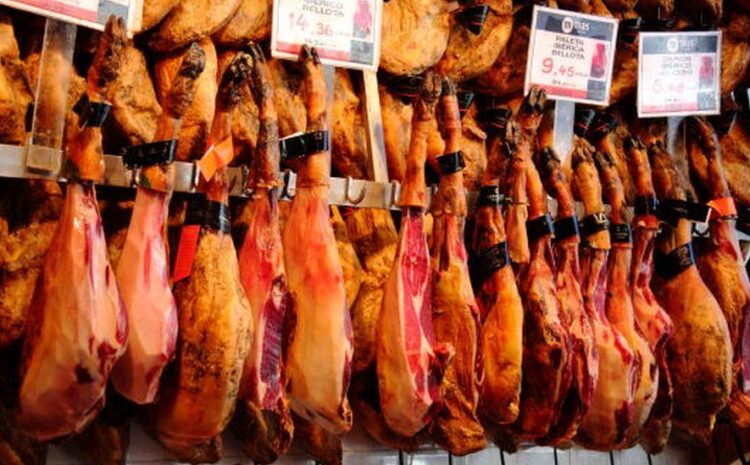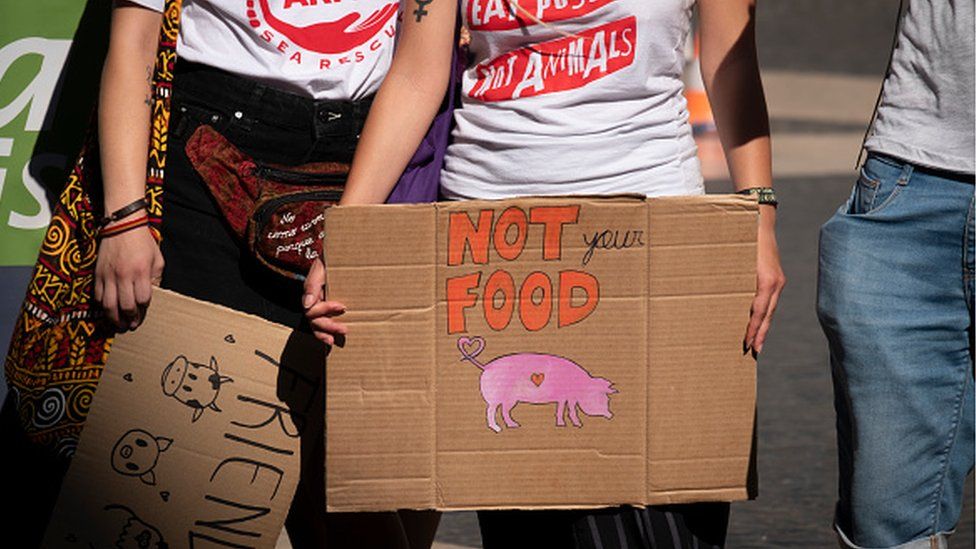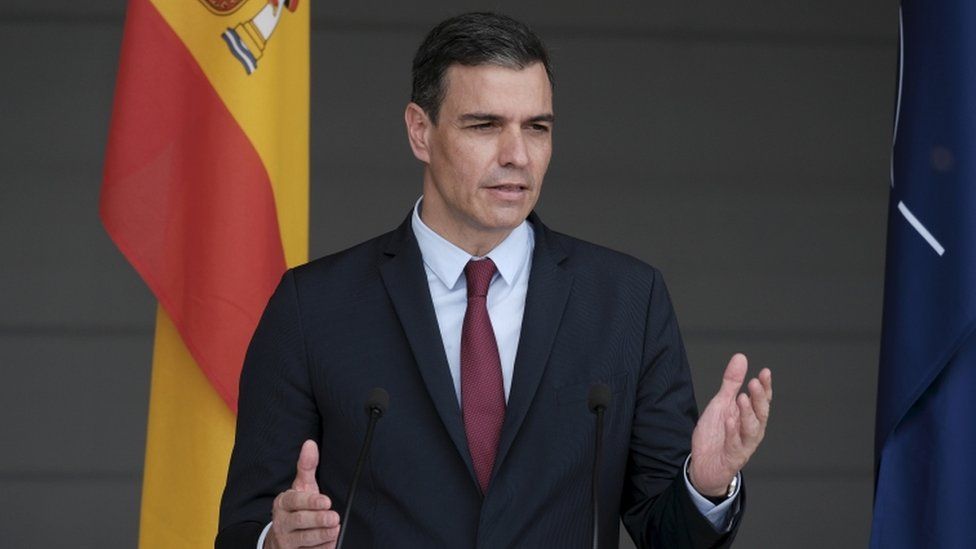
IMAGE COPYRIGHT GETTY IMAGES image caption Spain’s agriculture minister emphasised the importance of the meat industry to the country’s economy
This week consumer affairs minister, Alberto Garzón, launched a campaign to encourage Spaniards to eat less meat.
“Eating too much meat is bad for our health and for the planet,” Mr Garzón said in a video on Twitter.
But for some cabinet ministers, his plea for moderation was difficult to swallow.
“It seems to me the campaign is unfortunate,” agriculture minister Luis Planas said in an interview with a local radio station.
Mr Planas said the “Less meat, more life” campaign was “unfair” for Spain’s meat industry, which is a major contributor to the country’s economy.
The associations accused the minister of defaming a sector that accounts for 2.5 million jobs and exports worth almost €9bn (£7.7bn; $10.6) in Spain.
 IMAGE COPYRIGHT GETTY IMAGES
IMAGE COPYRIGHT GETTY IMAGESThis criticism raised the stakes for Mr Garzón, who went on state TV to defend his campaign and clarify his message.
The idea, he said, was not to stop eating meat altogether. Rather, he urged people to follow the guidance of Spain’s food regulator, which recommends eating between 200g (3.5oz) and 500g of meat a week.
At the moment, the average Spaniard eats more than 1kg, he said.
The World Health Organization (WHO) says many national health authorities advise people to limit intake of processed meat and red meat, which are linked to increased risks of death from heart disease, diabetes, and other illnesses.
But meat remains a dietary staple for many worldwide for cultural, economic and personal reasons.
When asked about the debate during a diplomatic trip to Lithuania on Thursday, Spanish Prime Minister Pedro Sánchez appeared to side with the carnivores.
For him, steaks were “unbeatable”, he said in a news conference.
 IMAGE COPYRIGHT EPA
IMAGE COPYRIGHT EPAThe feud exposed political differences between parties within Spain’s ruling coalition.
Mr Planas belongs to Mr Sánchez ‘s Socialist Party, which has strong support in some rural areas and among traditional working-class voters. Mr Garzón is from the left-wing Unidas Podemos, which depends on younger and urban progressive voters.

